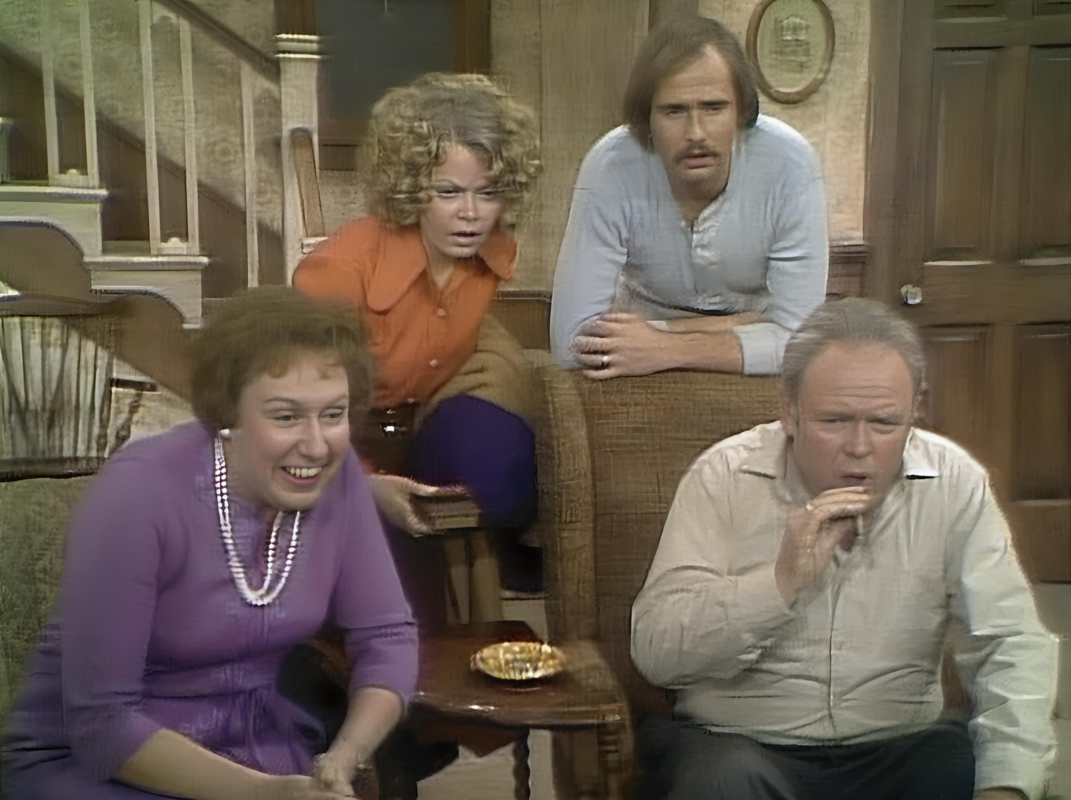
Renowned filmmaker Ava DuVernay, known for her incisive portrayals of social justice issues in works like “Selma,” “13th,” and “When They See Us,” offers a critical perspective on the iconic television show “All in the Family” and its portrayal of race and social issues. DuVernay’s critique centers on how media representations, particularly those in popular television, shape public perceptions and conversations about race, racism, and systemic inequality.
“All in the Family,” created by Norman Lear, was a groundbreaking sitcom in the 1970s that used humor to address serious social issues such as racism, sexism, and homophobia. The show’s central character, Archie Bunker, embodied the prejudices of a significant segment of American society, providing a lens through which viewers could confront these uncomfortable truths.
DuVernay acknowledges the show’s pioneering role in bringing these issues to the forefront of public discourse. “All in the Family” dared to tackle topics that were often considered taboo in mainstream media. However, she also raises concerns about the potential pitfalls of such representations.
“Archie Bunker was a character designed to satirize and criticize bigoted views,” DuVernay might say. “But satire can be a double-edged sword. While it can illuminate and critique, it can also normalize and perpetuate the very attitudes it seeks to condemn.”
One of DuVernay’s primary critiques is the risk of viewers misinterpreting the show’s intent. While Archie Bunker was intended to be a figure of ridicule, his character could also be seen as a relatable or even sympathetic figure by some viewers, thereby reinforcing rather than challenging their prejudices.
“The danger lies in the ambiguity of the satire,” DuVernay might explain. “If viewers fail to recognize the satirical intent, they may come to see Archie’s views as acceptable or even justified, rather than understanding them as a critique of bigotry.”
DuVernay also critiques the show’s approach to addressing systemic racism. “All in the Family” primarily focused on individual prejudices, as embodied by Archie, but often fell short in highlighting the broader, systemic nature of racial injustice.
“Systemic racism is not just about individual attitudes but about institutional practices and policies that perpetuate inequality,” DuVernay would argue. “By focusing too much on personal prejudice, the show risked oversimplifying the complex, pervasive nature of systemic racism.”
Moreover, DuVernay points out that while “All in the Family” broke new ground in addressing social issues, it did so predominantly through the lens of a white, male protagonist. This focus could marginalize the experiences and perspectives of those directly affected by the issues being discussed.
“The narratives of marginalized communities often get sidelined,” DuVernay might note. “While Archie’s character development is front and center, the show could have done more to elevate the voices and stories of the people who are most impacted by racism and discrimination.”
DuVernay emphasizes the responsibility of media creators to not only raise awareness but also to foster deeper understanding and drive social change. She advocates for a more nuanced approach to storytelling that goes beyond surface-level engagement with social issues.
“Raising awareness is important, but it’s just the beginning,” DuVernay would insist. “Media has the power to educate and inspire action. We need stories that challenge the status quo, that highlight systemic issues, and that empower audiences to seek justice and equity.”
In her own work, DuVernay strives to create media that not only entertains but also educates and empowers. Her films and series often delve into the historical and systemic roots of social issues, providing viewers with a deeper understanding of the complexities involved.
“Ava DuVernay’s critique of ‘All in the Family’ reminds us of the profound impact media representations can have on public consciousness,” DuVernay might conclude. “It’s a call to action for creators and consumers alike to seek out and support media that not only entertains but also enlightens and inspires.”
As we continue to navigate the challenges of representing social issues in media, DuVernay’s insights underscore the importance of responsible storytelling. Her critique of “All in the Family” serves as a vital reminder of the power of media to shape societal attitudes and the need for stories that drive meaningful change.
